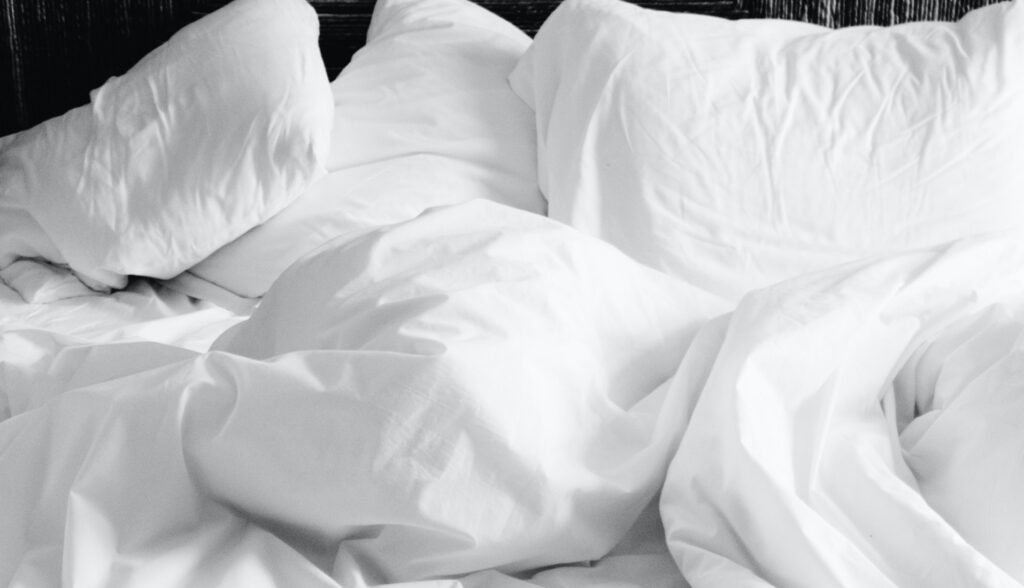Do you know that your sleep habits also affects your state of mind?
For anyone with depression, anxiety, or other mental health concerns, sleep is incredibly important. Sleep is closely linked to your overall health and well-being, and for anyone not sleeping well, the best thing to do to boost mental health is to improve sleep habits.
Thanks to these tips from Emma Grace Brown, sleeping well doesn’t have to be expensive. With healthy habits and natural remedies, you can enjoy better sleep.

Photo by Pexels
Reducing Stress
If you’re struggling with your mental health, reducing stress is extremely important. Stress and mental health are often part of a negative cycle. The more stress you endure, the harder it can be to manage your mental health, which, in turn, amplifies stress. Finding ways to relax and sleep better will help you break this cycle for better health. Relaxation exercises, deep breathing, meditation, or even yoga can help calm you before bed, and you can do all of these at home for free.
Natural Remedies
If you’ve been struggling to sleep, there are a few natural remedies that can help you sleep better and won’t cost a fortune. One of the most common items you can buy over-the-counter is melatonin. This is the natural hormone your body produces in the evening, encouraging your body to relax and fall asleep. Another inexpensive popular natural remedy is valerian root, a herb that improves sleep quality and helps you fall asleep faster. Do you drink tea before bed? Never drink caffeine in the evening. Instead, try a soothing cup of chamomile tea for better sleep.
Essential oils are a budget-friendly option for helping you sleep. You can place a drop of lavender under your pillow, put a couple drops into a hot bath, or use an oil diffuser to enjoy the soothing smell of sage or sweet marjoram before you sleep. With a small, inexpensive bottle of an essential oil, you can enjoy aroma therapy for several months.
Food for Sleep
What you eat can have a significant impact on how well you sleep. Fatty and spicy foods, chocolate, alcohol and highly-processed foods can inhibit sleep. For a better night’s rest, Garden Betty recommends incorporating fruits and vegetables that are known for their sleep-promoting compounds. Cherries, pineapple, kale, carrots, avocados and oranges are all great for boosting your sleep.
Devices and Bedding to Help You Sleep
Along with sleep supplements, natural remedies and food, improving your sleep environment will help you get a better night’s sleep. Start by lowering the temperature of your bedroom. Not only will this lower your heating bill, but it will also help you sleep better. Consider getting a white noise or similar sleep machine if you struggle with outside noise coming into your room, or get an air purifier to encourage deep sleep. You can also invest in new comfortable sheets, pillows, and quilts that meet your temperature needs.
Build Better Habits to Improve Sleep
Ready to break this stress cycle and sleep better to boost your mental health? LifeHack suggests starting by developing good sleep habits, such as sticking to a very consistent sleep schedule. Always go to bed at the same time, even on weekends. Your body will naturally get tired at that time, and you’ll start sleeping better. Best of all, developing a sleep routine costs you nothing.
Use your bedroom only for sleep.
Another way to improve sleep is to only use your bedroom for sleep. Remove the TV, don’t watch movies in bed, avoid working in the bedroom if you work from home, and use the couch in the living room to relax in the evening. You’ll train your body to associate being in your room with being sleepy, and soon you’ll be going to sleep more easily. Remember to also avoid using your phone before bed, as the blue light from the phone can inhibit the natural production of melatonin and keep you awake longer.
Lastly, Restonic points out that if your bedroom is overflowing with disorganization and clutter, your sleep retreat could be a more stressful space that makes it hard to get a good night’s rest. Create an environment that’s more conducive to sleep by eliminating clutter, cleaning from top to bottom and adding a refreshing scent. Once your bedroom can function as the respite it’s supposed to be, you’ll be on your way to getting those much-needed zzzs.
If you’ve been struggling with your sleep, boost your mental and emotional well-being by breaking the cycle of stress and poor sleep. Get the sleep you need with some budget-friendly sleep remedies, form good sleep habits, and try some natural remedies to get the sleep you deserve.
The Erika Mohssen-Beyk blog shares knowledge and experiences about self-improvement, natural health, wellness, fitness, natural food, all to help someone like you grow and prosper in life.
See also > How Meditation And Mindful Exercises Can Help With Stress And Anxiety.









Hey Erika
This blog post on budget-friendly sleep habits for good mental health is incredibly informative and helpful. It’s great to see that there are plenty of simple and affordable ways to improve our sleep and our overall mental well-being. The tips on establishing a consistent sleep routine, creating a comfortable sleep environment, and avoiding sleep-disrupting habits are all practical and easy to implement. Thank you for sharing this valuable resource with us!
Ramya recently posted…HexaCorp is a Microsoft Solutions Partner for Modern Work
Ramya,
I m glad you found the post informative.
Thank you for your comment
Erika
Using your bedroom only for sleep genuinely makes that room all about sleep and nothing else. If I work in the bedroom my mind associates the room with work and being awake, not sleeping. Bad idea. Sleep in that room and do the work or TV or phone time outside of that area. Super tips my friend.
Ryan Biddulph recently posted…8 Glaring Guest Blogging Errors
Right, Ryan, I agree, working in the bedroom is not a good idea for us. Especially having a TV or phone in it is a very bad thing 🙂 But for many, it seems common these days. Emma gave us good suggestions to follow.
Thank you for your insights
Erika
Sir I read your article carefully, it helped me a lot, I hope to see more related articles in the future. thanks for sharing. ,I read your article with interest, as always. When I read “often need more regular, skilled teaching to become literate,” I have to express my frustration,